Pursuing higher education is a long and challenging adventure demanding hard work, analytical thinking, and well-crafted writing. Yet, in their willingness to express themselves, students sometimes come up with odd, funny, and even ridiculous conclusions. Funny enough, they earn them high grades at times. Hard work pays off, as we know. And so does unplanned creativity, apparently.

✅ AI Essay Writer ✅ AI Detector ✅ Plagchecker ✅ Paraphraser
✅ Summarizer ✅ Citation Generator
Key Takeaways:
- Student essays often contain humorous mistakes because of stress, time pressure, and misunderstandings
- Grammar errors, factual inaccuracies, tautologies, and redundancies are frequent errors in student writing
- Some mistakes don’t pose much of a threat, while others will significantly lower your score.
It’s hardly a shock that essays with bizarre sentences, weird ideas, or outlandish theories often get the nod from the teachers. This likely comes from professors being well-acquainted with their students’ communication (and consequently, writing) styles. When they see something in an essay that deviates from norms or common sense, they tend to chalk it up to a simple accident. The student, perhaps overwhelmed by the whirlwind of ideas and arguments, might have simply lost their narrative thread without realizing it. Or, which is also possible, some professors genuinely embrace fresh, daring, or even revolutionary perspectives, and actively encourage such originality, even if these ideas are rather grotesque, so to speak.
This takes us to an interesting account provided on Reddit by a user who tells about their experience with the AP World History Exam. The author revealed, “I took the AP World test, and during the LEQ, I said that revolutionaries such as Karl Marx postulated new economic ideas. I did not cook using that statement. Seriously, the exam was completely free.” The post received a lot of attention, prompting hilarious and empathic reactions from other Redditors about what they believed were stupid things written in academic papers.
Common Hiccups in Student Essays
Ah, the curious subjectivity of mistakes! For some, what passes as the norm might be a terrible mistake in the eyes of another. Remember the beloved late 80s sitcom featuring the extraterrestrial Alf, who lived with a typical American family? In one of the episodes, Alf accidentally switches on the television that Willy, the family patriarch, is repairing. Electrified by the incident, Willy proclaims it a tragedy, whereas Alf, ever the interstellar optimist, downplayed the event to a less dramatic term – “a mistake.” Such is the disparity in perspectives!
Sadly, most teachers belong to the old school of traditional education and aren’t quite the bastions of open-mindedness. They have a habit of cataloging mistakes, assessing their severity, and eagerly deducting points. We, mortals of the student body, are left to put up with it and do our best to avoid making errors. But, let’s face it—who doesn’t make them? We’ve all faltered in our academic attempts to a certain degree. Some of the most frequent missteps include the following.
Grammar Mistakes
Grammar mistakes are our constant companions, stubbornly persisting despite our best efforts to dodge them. These slip-ups range from minor, like a missing letter in a word that doesn’t alter the intended message, to major blunders that completely flip the meaning of a sentence on its head.
Spelling Errors: Spelling errors are one of the most basic and prevalent mistakes in student essays. These mistakes can range from simple typos to more consequential misunderstandings of word spelling. Spell-check tools can catch many of these errors, but reliance on technology can sometimes lead to overlooked mistakes, especially with homophones (words that sound the same but have different meanings, like “their” and “there”).
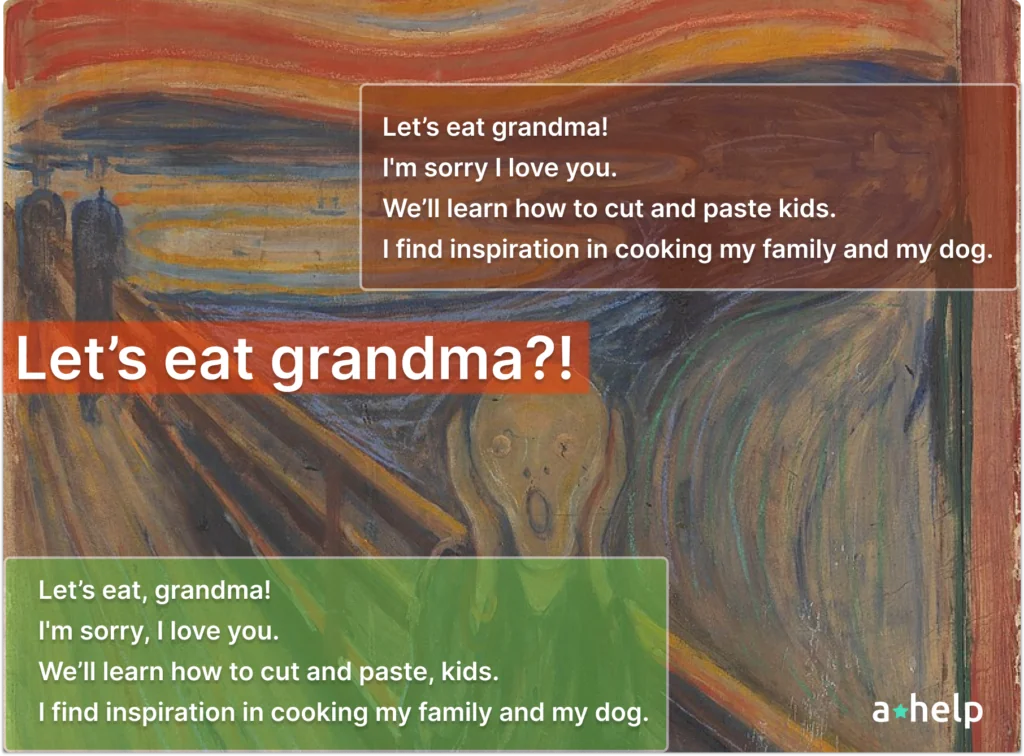
Punctuation Problems: Punctuation errors can drastically change the meaning of a sentence. Common issues include misplacing commas, incorrect apostrophes, and wrong use of periods, semicolons, and colons. For example, “Let’s eat, grandma” is quite different from “Let’s eat grandma.” Proper punctuation secures clarity and precision in writing.
Sentence Structure: Issues with sentence structure can include run-on sentences, sentence fragments, and awkward phrasing. Run-on sentences occur when two or more independent clauses are improperly joined, while sentence fragments are incomplete thoughts presented as sentences. Awkward phrasing can make sentences confusing or difficult to read. Clear and concise sentence structure is crucial for effective communication.
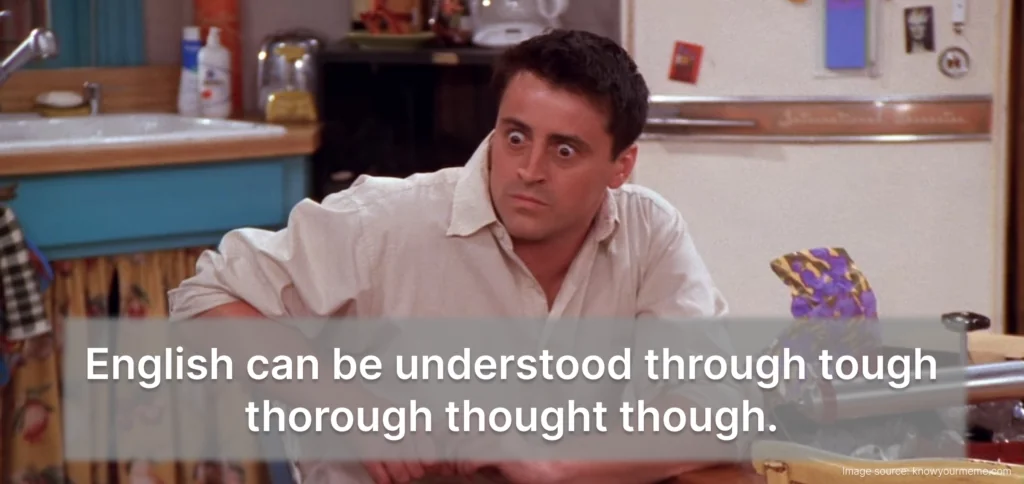
Context Mistakes
These inaccuracies aren’t always as obvious as a misplaced comma. If your mistake is contextual, it could lead to being misunderstood at best, or at worst, being regarded as unhinged. So tread carefully and steer clear of the following mistakes:
Fact Confusion: Confusing historical facts or events is a common mistake, especially in subjects like history or social studies. For instance, a student might write that “Abraham Lincoln was the first president of the United States,” mixing up a key historical fact. Such errors can arise from a lack of thorough understanding or simply mixing up facts under pressure.
Tautology: Tautology involves repeating the same idea using different words, which can make writing redundant and tiresome. For instance, saying “The beginning of the start was at dawn” is repetitive. Students should strive to convey their points without unnecessary repetition.
Redundancies: Redundancies involve including unnecessary words or phrases that do not add value to the sentence. This can clutter writing and make it less effective. For example, writing, “In my personal opinion, I think that…” is redundant, as “I think” already indicates it is a personal opinion.
Lack of Fact Knowledge: Sometimes students write confidently about topics they do not fully understand, leading to bizarre or incorrect claims. For example, “The invention of the airplane in the 18th century revolutionized travel” shows a misunderstanding of historical timelines.
Why do we make mistakes? Several factors contribute to all these types of errors in student essays. Stress and time pressure from high-stakes exams and tight deadlines often lead to hasty writing and this results in overlooked mistakes. A lack of understanding of grammar rules or the subject matter can also cause errors, as students struggle with complex language rules or misunderstand the topic. Overreliance on technology, such as spell-check and grammar-check tools, can further deepen the problem, as these tools are not foolproof and may miss context-specific errors or suggest incorrect changes. Additionally, inadequate proofreading, whether due to time constraints or negligence, results in missed mistakes that could have been corrected. Finally, the pressure to meet specific word counts can lead students to add unnecessary words or phrases, resulting in redundancies and tautologies. Therefore, quality should always take precedence over quantity to guarantee clear and accurate writing.
Laughter and Empathy on Reddit
The Reddit post about the AP World History exam generated a lively discussion, with many users chiming in to share their own funny and often embarrassing essay mistakes. The original post captured a common experience among students who have faced the pressure of high-stakes exams and the resulting brain freezes.
There’s a general understanding among students that exam graders often prioritize the essence of the argument over the precision of the language behind it, recognizing the constraints students are under during exams. One user reassured the author by saying, “You made your point very clearly, I don’t see a problem here. The wording just sounds off. I mean, it’s not Shakespeare. But they grade these as rough drafts so it’s more about the content than the actual writing, if that makes sense.”
Another user added their own funny recollection: “I once wrote that Alexander the Great conquered Europe in the 18th century. My teacher’s comment was, ‘Impressive, considering he lived in the 4th century BC.'”
This kind of factual error is, of course, embarrassing, but it is also relatable and could have been caused by the intense pressure students face. After all, the difference in 22 centuries isn’t that big of a deal (historically speaking).
The thread quickly filled with similar stories, each more amusing than the last. One user mentioned,
| “In my history exam, I wrote that the Industrial Revolution began because people wanted more factories to make chocolate. My teacher laughed and gave me partial credit for creativity.” |
This example explains how teachers often appreciate the creativity and effort students put into their answers, even when the facts are off.
Another Redditor commented, “I advocated for teleportation as a solution to traffic congestion in a serious economics essay. I got an A for thinking outside the box, but my professor suggested I stick to more feasible solutions next time.” This illustrates how outlandish ideas, even though not always practical, can sometimes be rewarded for their originality and the unique perspective they bring to the discussion.
A particularly memorable comment read, “I wrote about how the Roman Empire fell because they ran out of togas. My teacher’s note was, ‘Interesting theory, but let’s explore some historical evidence next time.'” This kind of playful feedback from teachers shows that they often recognize the effort and creativity behind these mistakes, and use them as teaching moments rather than harshly penalizing students.
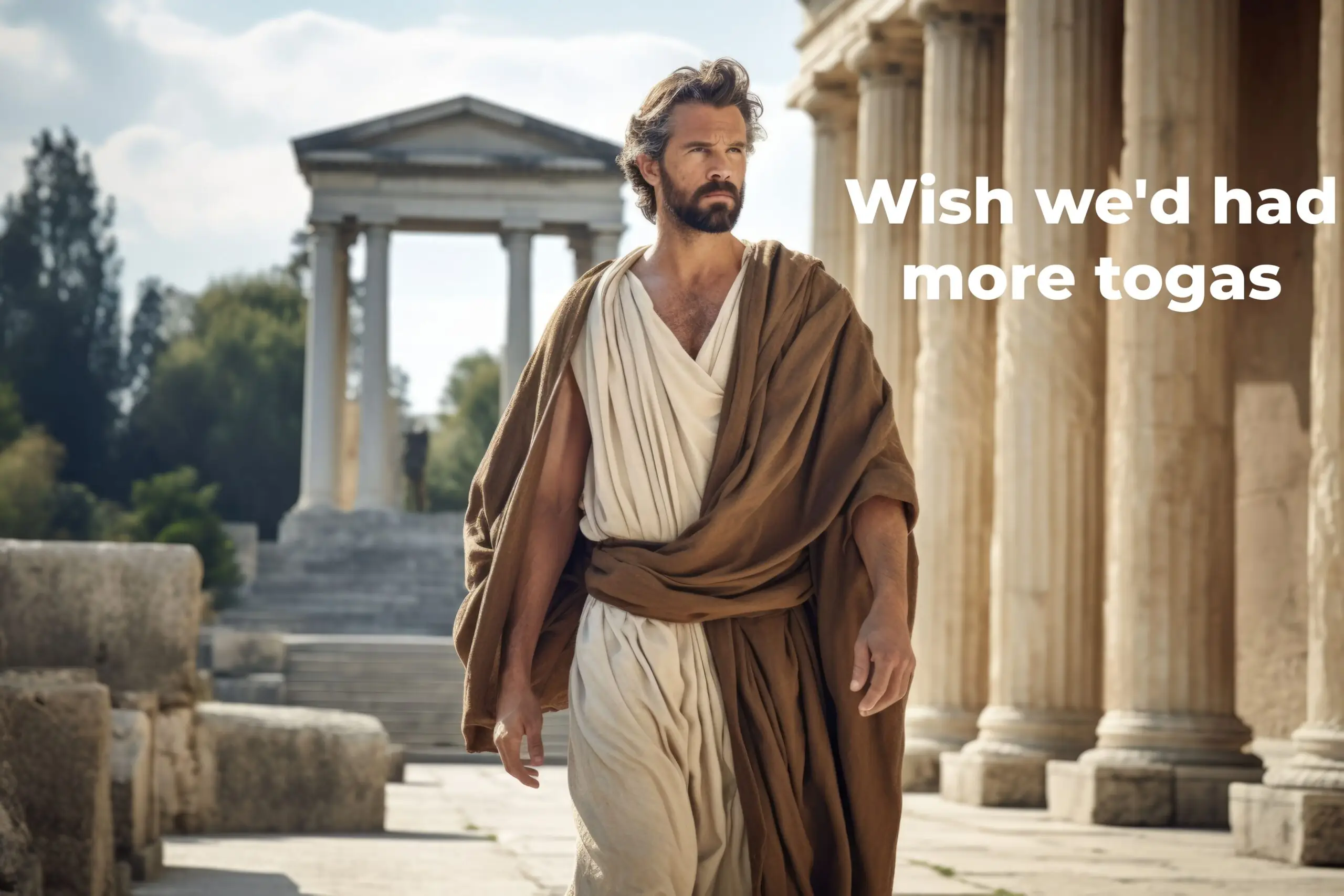
The overall tone of the Reddit discussion was friendly and empathetic. Many users expressed relief at finding out they weren’t alone in making silly mistakes under pressure. Comments like, “Glad to know I’m not the only one who has written something ridiculous during an exam” were common throughout the thread. This shared experience of making and laughing at mistakes created a sense of community among the participants. Errors are a natural part of the learning process and even the most bizarre mistakes can lead to growth and improvement. The supportive environment encouraged students to view their mistakes with humor and to learn from them rather than feeling discouraged.
Follow us on Reddit for more insights and updates.


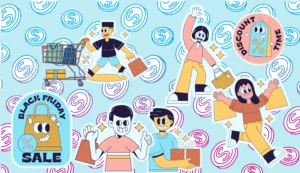

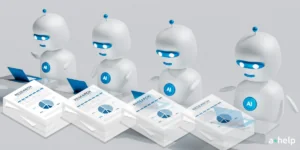
Comments (0)
Welcome to A*Help comments!
We’re all about debate and discussion at A*Help.
We value the diverse opinions of users, so you may find points of view that you don’t agree with. And that’s cool. However, there are certain things we’re not OK with: attempts to manipulate our data in any way, for example, or the posting of discriminative, offensive, hateful, or disparaging material.